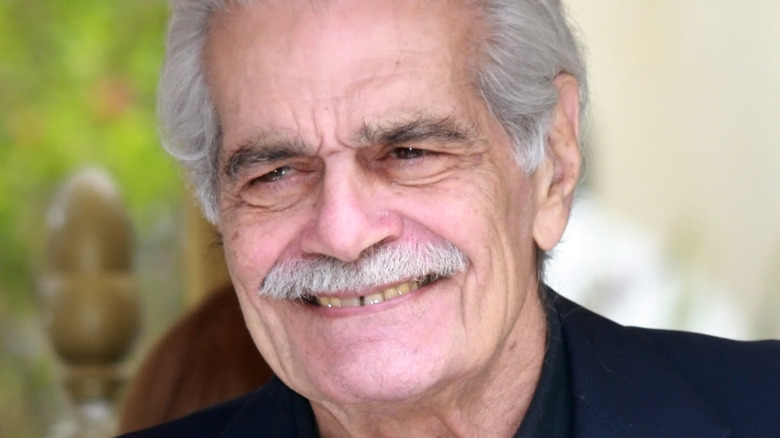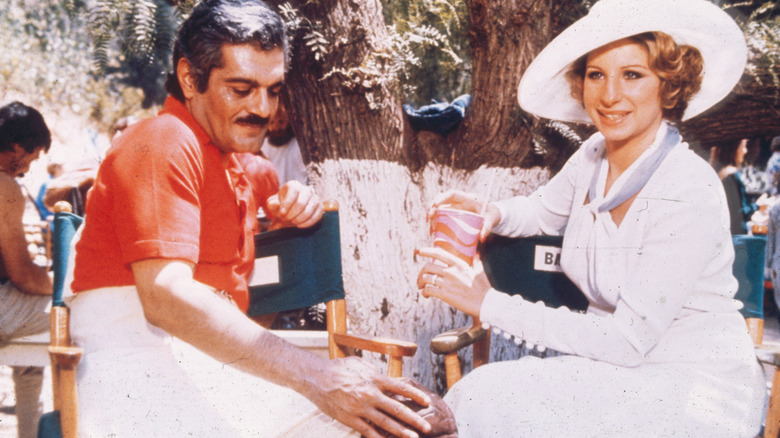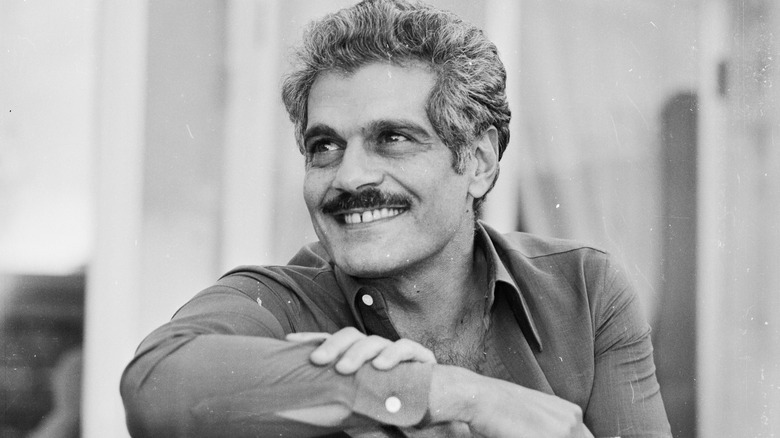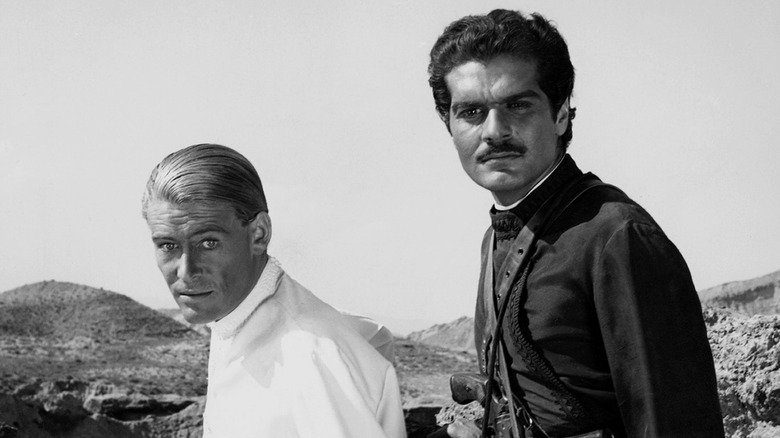The Heart-Wrenching Death Of Omar Sharif
Award-winning actor Omar Sharif was an acclaimed international movie star. His leading roles in two hit films in the 1960s, both epics by director David Lean, catapulted him into superstardom. "Lawrence of Arabia" earned him an Oscar nomination and a Golden Globe win for best supporting actor in 1963, and "Doctor Zhivago" earned him a best actor Golden Globe in 1966 (via Golden Globe Awards).
He was easily recognized by his dashing good looks and gap-toothed smile, and he worked steadily in the movies from his 1953 film debut in Egypt, where he was born. He notably appearing opposite Barbra Streisand in her first film, "Funny Girl" and then in the sequel, "Funny Lady," and with Julie Andrews in the spy thriller "The Tamarind Seed." By the mid-1970s his acting career tapered off as he focused on the card game bridge. He was so successful at it, he was ranked among the world's best players.
Sadly, in early 2015, his agent confirmed that Sharif had been diagnosed with Alzheimer's disease. The actor died July 10 of that year at the age of 83, from a heart attack, according to NBC News.
Sharif's decline from Alzheimer's
Sharif's condition was first revealed by his son, Tarek El-Sharif, in 2015 to the Spanish newspaper El Mundo. "It's difficult to determine what stage it's at," he told the paper, per a translation by the BBC. "It's obvious he'll never improve and it will get worse." Tarek said that his father had begun showing signs of dementia three years prior.
While suffering from the degenerative disease, Omar Sharif apparently still lived a comfortable life close to his son, only moving to a hospital at the very end of his life (per NBC News). The actor stayed in a luxury hotel in El Gouna, a resort town in Egypt, and kept to a daily routine of sitting on his terrace during the day and listening to live music at the hotel bar at night. But any deviation from this routine, such as going to a restaurant in town, left Sharif insecure.
"He still knows he's a famous actor. The loss of memory affects above all specific things, details like when he was in a specific place or who he acted with in a specific film," Tarek told El Mundo, according to the BBC translation. "He remembers, for example, that it was Doctor Zhivago but he's forgotten when it was filmed. He can talk about the film but he forgets its name or he calls it something else instead like Lawrence of Arabia." Tarek also said that his father sometimes believed that approaching fans were people he knew and had forgotten about.
In his final days, Sharif refused to eat
A common early symptom of Alzheimer's is sudden aggression or anger (via the Alzheimer's Association), which might explain Sharif's behavior in 2011, when he impulsively slapped a fan who had asked for a photo with the actor (via Reuters). Sharif had been noted for his testiness in decades prior as well — he faced a misdemeanor and was forced to take an anger management class in 2007 for punching a parking valet, and also reportedly got into a fight at a Paris casino in 2003, per NBC News.
Sharif's strong will persisted even as he fought the disease — he refused to believe he was sick, according to his son (via El Mundo), and didn't do exercises prescribed by his doctors to prolong his life. In his final days, when Sharif was moved to one of Egypt's top hospitals, Sharif refused to eat and was put on a drip.
"He did not want to put anything in his mouth, even if they force him, he refused completely to eat," his friend Zahi Hawass told NBC News. "He was completely depressed from Alzheimer's. He became very bad from a year ago."
Omar Sharif's later professional years
Before his sickness and death, Sharif had a long and interesting life, even as his acting career faded. Sharif played in international bridge tournaments and in the 1964 and 1968 Olympics in the World Bridge Federation (via Olympics). He wrote books and released videos and video games on bridge, and he published a syndicated column on the game (via Britannica). He was such an aggressive gambler, according to NBC News, that he once won $1 million at an Italian casino — but also lost a villa at a card game in the 1970s.
As Sharif got older, his film roles tapered off, and when he did accept roles, he would later describe them as "rubbish." He declined parts in the 1990s, explaining that he had lost his "self-respect and dignity" (via BBC). But he did accept a film in 2003, a French drama titled "Monsieur Ibrahim," in which he played a Muslim shopkeeper in Paris who adopts a Jewish boy. His performance earned him the César Award, the French equivalent of the Academy Award, and he earned some of his best reviews in decades, according to the BBC.



